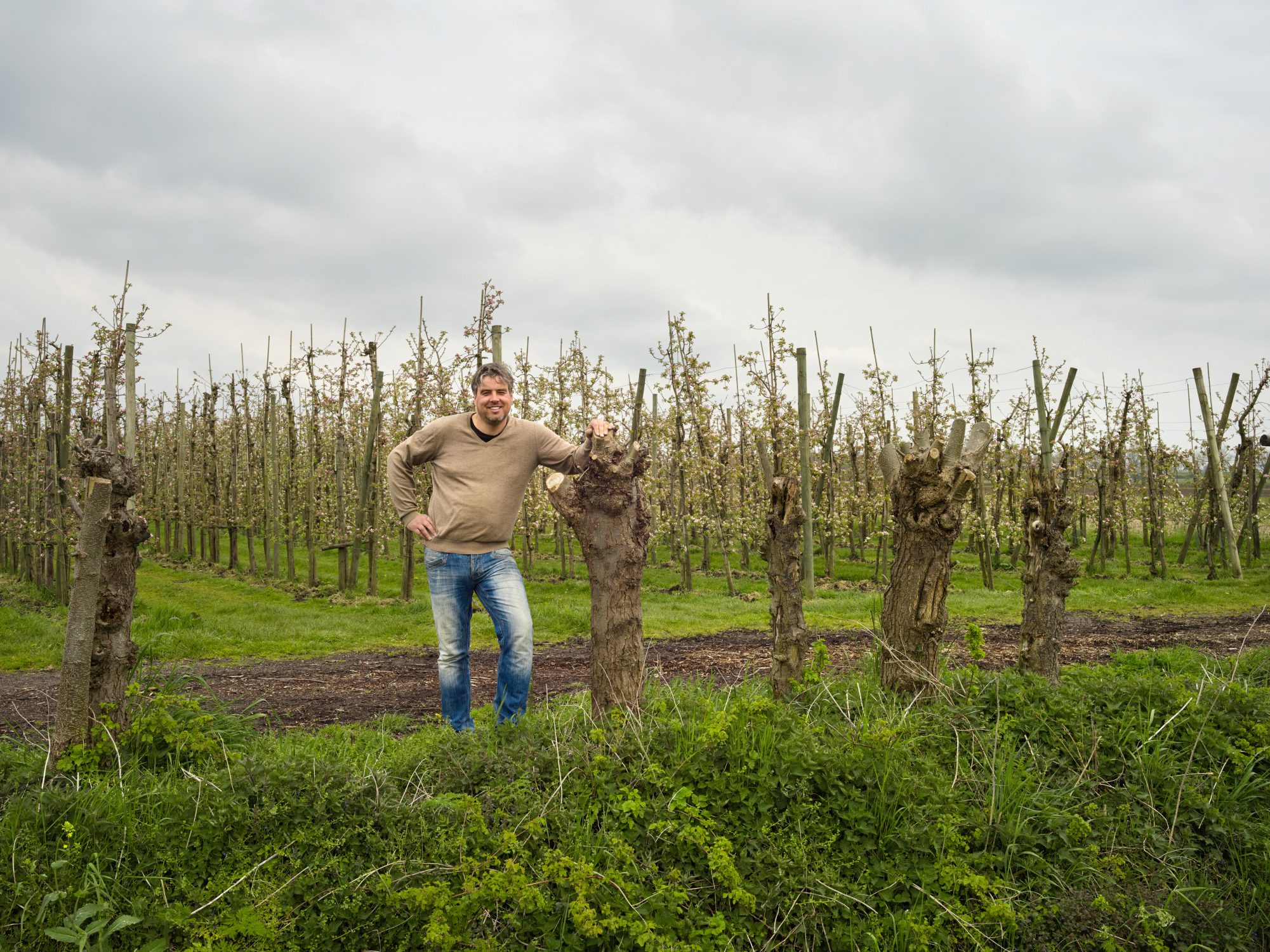“If you take good care of nature, it will take good care of you.”
William Pouw
Schalkwijk, the Netherlands
William Pouw has a thirteen-hectare organic fruit farm on the clay soils of Schalkwijk. As well as apples and pears he also grows plum trees.
Organic farming means handling all life forms very cleverly. If you take good care of nature, it will take good care of you. Plants and animals are given time to grow and the soil is never exhausted. So no artificial fertilizers are used, no chemical herbicides or pesticides and no genetically modified crops.
Weeds are not sprayed but tackled by mowing, hoeing and raking.
According to research in 2000 by the Dutch Centre for Agriculture and Environment, as far as herbicides and pesticides are concerned, organic fruit cultivation is twenty-five times as environmentally friendly as normal fruit cultivation.
It sounds logical, and so it is. We concentrate above all on keeping the trees healthy, by adding compost, mowing the edges of ditches only occasionally, and growing leguminous plants. That way we ensure the crop is as strong and healthy as possible.
"Just like a pizza it starts at the bottom."
Unfortunately this important resource is also one of the most neglected. Organic growers can explain very clearly why the soil is essential to life on earth, because it feeds plants, which in turn produce food and oxygen for humans and animals.
William does all he can to treat the soil in the best way possible and tries to improve it by feeding it well, improving its structure and engaging in effective water management.
‘To fertilize the soil we use compost and organic alfalfa. We also encourage earthworms to ensure there’s a good proportion of humus in the ground.’
Organic farming in general considers care for living organisms as of paramount importance, from the tiniest soil organism to the tallest tree towering above it. At every link in the organic food-production chain, it aims to conserve plants and animals and increase species diversity.
I’m eager to know what kind of life exists in a tree and how I can activate it to improve cultivation. There are millions of tiny creatures and fungi in the soil. Little is known about them even today. I’d like to go a step further and investigate what kinds of fertilizer and compost help to make a fruit tree as happy as possible.
Fruitful Stories
We picked two more stories about healthy fruits
For the best viewing experience use landscape

To make your experience on our website even better, we use cookies!
